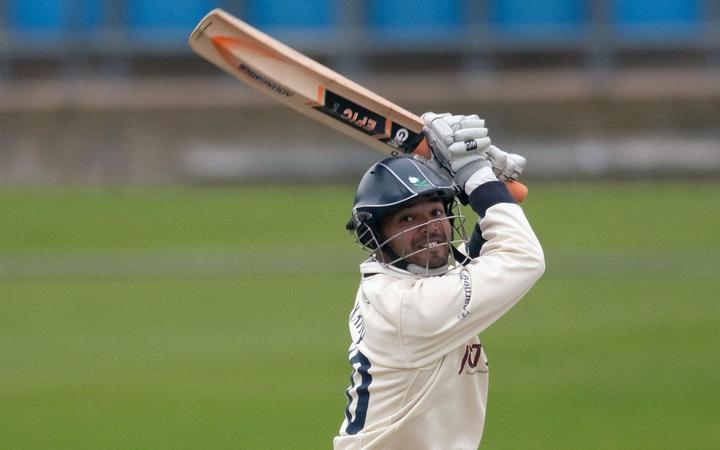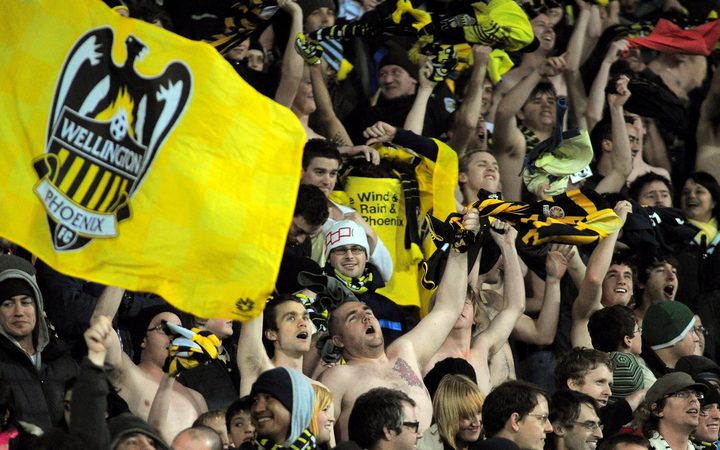Athletes facing big challenge from online abuse
Stopping the racist, sexist, homophobic and other online abuse increasingly directed at professional athletes is a challenge facing all sports.

Azeem Rafiq
Photo: Cricketpix Ltd.
Online safety groups and leading New Zealand sports organisations agree that to fight the abuse they need a collective approach.
British-Asian cricketer Azeem Rafiq emotionally told a committee of British MPs this week of the racial harassment and bullying he had been subjected to while playing county cricket for Yorkshire.
He called his treatment “inhuman” and said it went unchecked.
The offspin bowler and former captain of the England Under-19s, who is of Pakistani descent, then went on to speak of the social media attacks his family had suffered since he had raised the issue.
“This last two weeks when the whole thing has blown to a new level I’ve been told to go back to my roots, if I don’t like to go back where I came from it hurts,” Rafiq said.
Among the harsh words were kind ones and Rafiq thanked those who had supported him on social media.
“There’s a lot of good people out there but I think it’s human nature you always pick up the negative ones and it’s been hurtful.”
Rafiq was not alone.
Death wishes and creepy proposals were among the messages increasingly being left in high profile athletes’ direct messages and posted publicly on sports organisations’ official and unofficial social media platforms.

Social media platforms can be hard places for athletes to visit.
Photo: 123RF
The abuse could get so bad that professional athletes avoided going online after a game – or shutdown their social media accounts entirely.
Sports organisations tried to shield their players from the worst of it, but admitted it was an issue that was not going away.
Fans could be banned from stadiums for abuse but once the athlete left the arena what so-called supporters said was difficult to police.
Elite athletes encounter “legitimate fans who go too far to stalkers to the aggressive personalities who would probably target anybody online”, according to online safety organisation Netsafe’s chief executive Martin Cocker.
“Often people feel that they have a particular right and connection with the sports teams that they follow and they have a right to express their views and as we know people can often go 10,20,30 percent further online than they would at any other time, so we do see stuff that is clearly abusive and harmful,” Cocker said.
“High profile sportspeople have a very close relationship with their fans, they don’t want to be seen to be over-reacting to feedback and I think that they quite often take a higher level of abuse and harassment than the rest of us would because they feel as though that comes with the territory.”
Like all New Zealanders, athletes could get help from the Harmful Digital Communications Act 2015 which made it illegal to post harmful messages, damaging images or comments online.
Serious offences could be punished by up to two years in jail or fines of up to $50,000.
However, athletes were reluctant to take this route.
“By in large people would like the bad behaviour to stop and they would like the harmful content removed, [in] most cases sports people don’t really want to have to legal action, like anybody they don’t want the difficulties that come with doing that.”
A cross-code approach to abolishing online abuse
This month in Australia 24 sports organisations ranging from rugby to football to netball and gymnastics banded together with the government’s eSafety Commissioner to address the online abuse athletes, officials and staff were increasingly being subjected to.
All codes involved signed the Online Safety Statement of Commitment – a document that outlined how they would work to reduce the abuse.
Australian netball players rallied around English international goal shooter Jo Harten earlier this year following online abuse she received after a narrow loss in the domestic Super Netball competition.

Netball player Jo Harten was subject to abuse on social media.
Photo: PHOTOSPORT
Following that game Harten, who previously played for New Zealand netball franchises, revealed some of the messages that she had received on social media told her to “rot in hell” and “die”.
South Sydney NRL player Latrell Mitchell called out racist abuse he received online, which led to the perpetrator being fined and convicted for using a carriage service to menace, harass and offend in April.
In a separate incident, the person responsible for directing death threats at Mitchell’s family via social media after his on-field collision with New Zealander Joseph Manu was handed a police caution under the Young Offenders Act.
eSafety Commissioner Julie Inman Grant said although sport in Australia was usually a powerful community builder, online interactions with athletes were not always positive.
“Serious and harmful online abuse compounds the daily racism, misogyny and homophobia many athletes already face and can have devastating impacts on their wellbeing,” she said.
“We all need to work together, in athletic pursuits and online, to tackle these issues.”
The potential for a collaborative approach in New Zealand had the backing of online safety proponents and sporting organisations.
“The ability to set some sort of standards and rules and apply them across lots of different clubs and codes would make a big difference,” Cocker said.
“At the moment we leave the social media managers and people within organisations to make decisions on a daily basis and to work out how to handle abuse and harassment and protect the sports people within their organisation and some do it exceptionally well and others do it less so and there is definitely not that feeling of consistency across all of the different codes and clubs.”
An agreed code would not only help social media managers but would also allow fans to become a bit more self-policing of their peers, he said.

Wellington Phoenix fans.
Photo: Photosport
The Wellington Phoenix have one of the highest social media followings of any of the A-League clubs and also rank at the top amongst other sports codes in New Zealand for social media presence.
Fan engagement manager James Craw had been with the Phoenix for three seasons and he said it was only last season that he noticed people really crossing the boundary with their abusive online comments.
“You’re always going to get a percentage of people who exist to troll or to put people down and we’ve had a couple of specific players in our team who really do get a very unfair level of criticism and some of it is just incredibly harsh,” Craw said.
Craw said the Phoenix had close ties with other sports and a collective approach to online conduct would be beneficial.
“Football fans are all about banter but when it crosses the line and becomes hurtful or abusive towards players that’s where we will take a stand and we hope that other sporting codes would follow that same way of looking at it,” Craw said.
Like the Phoenix, New Zealand Rugby said it would ban commentors on their social sites if needed to keep the discussions free of name-calling, mean-spiritedness, or personal abuse.
NZR had profanity filters switched on for all their channels to ensure that the worst comments are not seen in the first place and the professional players could confidentially raise any online concerns with their personal development managers.
For all the latest Sports News Click Here
For the latest news and updates, follow us on Google News.
